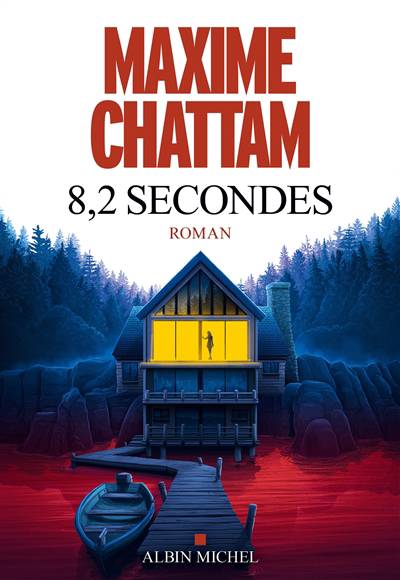
- Retrait en 2 heures
- Assortiment impressionnant
- Paiement sécurisé
- Toujours un magasin près de chez vous
- Retrait gratuit dans votre magasin Club
- 7.000.0000 titres dans notre catalogue
- Payer en toute sécurité
- Toujours un magasin près de chez vous
Discovering the City of Sodom EBOOK
The Fascinating, True Account of the Discovery of the Old Testament's Most Infamous City
Steven Collins, Latayne C. Scott
Ebook | Anglais
19,00 €
+ 19 points
Description
The fascinating, true account of the quest for one of the Old Testament’s most infamous cities.
Like many Christians today in the academic world, Dr. Steven Collins felt pulled in different directions when it came to apparent conflicts between the Bible and scholarly research and theory—an intellectual crisis that inspired him to lay it all on the line as he set off to locate the lost city of Sodom.
Recounting Dr. Collins’s quest for Sodom in absorbing detail, this adventure-cum-memoir reflects the tensions that define biblical archaeology as it narrates a tale of discovery. Readers follow “Dr. C” as he tracks down biblical, archaeological, and geographical clues to the destruction of Sodom and Gomorrah, narrowing the list of possible sites as he weighs evidence and battles skeptics. Finally, he arrives at a single location that looms as the only option: a massive ancient ruin called Tall el-Hammam in the Hashemite Kingdom of Jordan.
Many scholars who were initially opposed to Dr. Collins’s theory now concede that history books may need to be rewritten in light of his groundbreaking discovery. It—along with several other recent finds—is challenging the assumptions of academics and asserting a new voice in the controversy of biblical archaeology and the dispute over using the Bible as a credible historical source.
***
From respected archaeologist Dr. Steven Collins and award-winning author Dr. Latayne C. Scott comes the fascinating, true account of the frustrating search and exciting excavation of the city the Bible calls Sodom, which scholars and others had “misplaced” for hundreds of years.
Like many modern-day Christians, Dr. Collins struggled with what seemed to be a clash between his heritage of belief in the Bible and the research regarding ancient history and human evolution. This crisis of faith led him to embark on a quest to put both his archaeological education and the Bible to the test by seeking out the lost ancient city, an expedition that has led to one of the most exciting finds in recent archaeology.
Challenging the assumptions of academics around the world, Discovering the City of Sodom may well inspire a revision of the history books. Dr. Collins has become a new voice in the controversy over using the Bible as a credible source of understanding the past—and opened a new chapter in the struggle over the soul of biblical archaeology.
Like many Christians today in the academic world, Dr. Steven Collins felt pulled in different directions when it came to apparent conflicts between the Bible and scholarly research and theory—an intellectual crisis that inspired him to lay it all on the line as he set off to locate the lost city of Sodom.
Recounting Dr. Collins’s quest for Sodom in absorbing detail, this adventure-cum-memoir reflects the tensions that define biblical archaeology as it narrates a tale of discovery. Readers follow “Dr. C” as he tracks down biblical, archaeological, and geographical clues to the destruction of Sodom and Gomorrah, narrowing the list of possible sites as he weighs evidence and battles skeptics. Finally, he arrives at a single location that looms as the only option: a massive ancient ruin called Tall el-Hammam in the Hashemite Kingdom of Jordan.
Many scholars who were initially opposed to Dr. Collins’s theory now concede that history books may need to be rewritten in light of his groundbreaking discovery. It—along with several other recent finds—is challenging the assumptions of academics and asserting a new voice in the controversy of biblical archaeology and the dispute over using the Bible as a credible historical source.
***
From respected archaeologist Dr. Steven Collins and award-winning author Dr. Latayne C. Scott comes the fascinating, true account of the frustrating search and exciting excavation of the city the Bible calls Sodom, which scholars and others had “misplaced” for hundreds of years.
Like many modern-day Christians, Dr. Collins struggled with what seemed to be a clash between his heritage of belief in the Bible and the research regarding ancient history and human evolution. This crisis of faith led him to embark on a quest to put both his archaeological education and the Bible to the test by seeking out the lost ancient city, an expedition that has led to one of the most exciting finds in recent archaeology.
Challenging the assumptions of academics around the world, Discovering the City of Sodom may well inspire a revision of the history books. Dr. Collins has become a new voice in the controversy over using the Bible as a credible source of understanding the past—and opened a new chapter in the struggle over the soul of biblical archaeology.
Spécifications
Parties prenantes
- Auteur(s) :
- Editeur:
Contenu
- Nombre de pages :
- 352
- Langue:
- Anglais
Caractéristiques
- EAN:
- 9781451684377
- Date de parution :
- 01-04-13
- Format:
- Ebook
- Protection digitale:
- Adobe DRM
- Format numérique:
- ePub

Seulement chez Librairie Club
+ 19 points sur votre carte client de Librairie Club
Les avis
Nous publions uniquement les avis qui respectent les conditions requises. Consultez nos conditions pour les avis.






